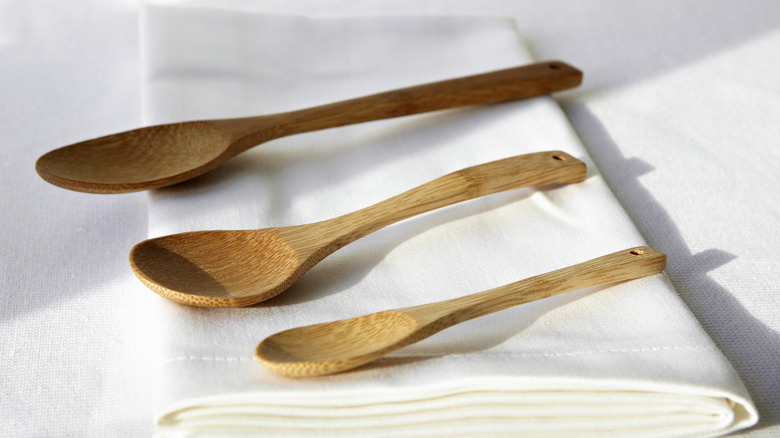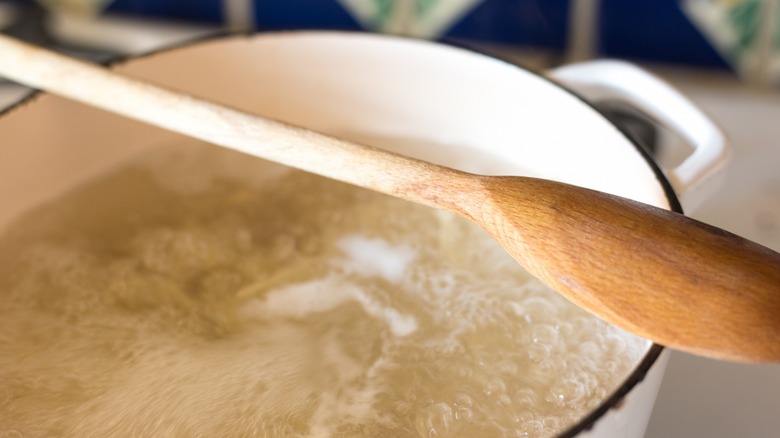Why You Should Never Clean Wooden Spoons By Boiling Them In Water
Wooden spoons are a natural choice for both pro and novice cooks alike. You don't have to worry about them scraping and scratching your cookware or being too hot to handle if you walk away from your stove to grab another ingredient. However, the one thing you might not be fond of when it comes to wooden spoons is that they are similar to your cutting boards and can easily absorb odors like onions and garlic. You may have heard that boiling your spoons in water can help eliminate these smells, but before you put this cleaning hack to the test, stop. You do not want to boil your wooden spoons.
Wooden spoons are a natural material so when you boil them, you are allowing your kitchen tool to soak up water. As it dries, it is going to lose its natural oils and will eventually crack or warp. You may even notice your spoon looks a little smaller. This is because when wood gets wet and then dries out, it shrinks.
Use a little lemon
So, how should you care for your wooden spoons? Handwashing them with soap and water is the simple way you clean your spoons; however, you also want to treat them with a little mineral oil from time to time. This step will do a couple of things: It can help stop the spoon from soaking up stinky smells in the first place and it will ensure your spoons don't crack.
That said, if you find your spoon is starting to smell like your grandmother's secret pasta sauce that uses eight cloves of garlic, you can turn to a natural remedy to remove it. Simply take a little salt and sprinkle it on the spoon. Then with a half lemon, you can scrub the spoon and rinse with water, and it should lift any unpleasant fragrances. If it's a really tough smell or your spoon has turned red from the spaghetti sauce, you can use baking soda and lemon in the same manner. Just make certain you dry your spoons well after you wash them.

